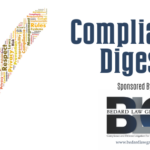Making sure to explain in specific detail why the plaintiff lacked standing to sue, a District Court judge in Illinois has granted a defendant’s motion to dismiss after it was sued for allegedly violating the Fair Debt Collection Practices Act by using a vendor to print and mail a collection letter and allegedly reporting information about the debt to a credit reporting agency without noting that the account is disputed.
A copy of the ruling in the case of Colbert v. National Credit Systems can be accessed by clicking here.
The plaintiff received a collection letter from the defendant. In the upper-left corner of the letter, there was a notation that it was send from a mailing house in California named “Dept. 855.” The plaintiff sent a letter back to the defendant, indicating that she was disputing the debt, requesting more information, and for the defendant to stop communicating with her about the debt. She filed suit two weeks later.
Judge John Robert Blakey of the District Court for the Northern District of Illinois goes into great detail about standing, the ins and outs of Hunstein v. Preferred Collection & Management Services, and the Supreme Court’s ruling in TransUnion v. Ramirez to reach a familiar conclusion — the information that was sent to the plaintiff was not publicly communicated and thus not enough to have standing to sue. The plaintiff did claim that the size of the debt — about $5,700 — carried a “greater likelihood of humiliation” than if the amount were smaller, but Judge Blakey called that a “distinction without a difference.”
Regarding the claim that the defendant reported information about the debt to the credit reporting agencies without marking the account as disputed, the plaintiff included one piece of evidence – an exhibit of a “credit report data” which noted that the account was “Status: Open, ACCOUNT IN DISPUTE.”
Judge Blakey did give the plaintiff an opportunity to amend her complaint, if she can find evidence that the defendant falsely reported information about her debt.









